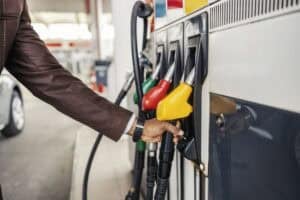Suzuki S-Presso will cost R710 to fill, while a diesel Toyota Prado can set you back R3 828.

Motorists are bracing for more pain at the pumps as the petrol price reaches new heights on Wednesday. As devastating as the new numbers look on paper, the harsh reality will only kick in when motorists fill up for the first time after the hike.
To give you an indication of what you can expect to fork out at the pumps from Wednesday, we have calculated what it will cost to fill the tanks of different cars varying in size and fuel type.
New petrol price
The inland petrol prices we have used in the calculations are R26.74 for 95 octane and R26.31 for 93. For diesel, we worked on an amount of R25.52 for 50 ppm, though the price may vary between fuel stations.
Because fuel tanks vary in size and not all cars’ fuel consumption is the same, we have also worked out what one kilometre would cost in each car.
ALSO READ: July petrol price: Brace yourself, another massive hike coming this week
Our picks include a compact hatchback, a medium-sized hatch, a medium-sized SUV, a medium sedan, a double cab bakkie and large SUV. All of them are current models that are sold new.
Suzuki S-Presso 1.0 GL – R710.37
South Africa’s cheapest car also has one of the smallest tanks around, which is always a good thing when the petrol price goes up. The S-Presso is fitted with a 27-litre petrol tank that can run on 93 octane.
Suzuki claims that its fuel consumption is 4.9L/100 km, which will give it a range of 551 km. Every kilometre travelled in the S-Presso will cost the motorist R1.28 in fuel costs.
VW Polo hatch 1.0 TSI 85kW Life – R1 052.00
This Polo, one of Mzansi’s most sought-after cars, is fitted with a 40-litre petrol tank and requires 95 octane petrol.
Volkswagen claims it will sip 5.4 litres for every 100 km, which if achieved will give it a range of 741 km. The cost for every kilometre works out to R1.41 after the July petrol price increase.
Hyundai Tucson 2.0D Elite – R1 378.00
The latest generation Tucson comes with a 54-litre fuel tank. The Korean carmaker claims it will sip 7.4 litres of diesel for every 100 km, which works out to a range of 730 km. Every kilo would, therefore, work out to R1.88.
BMW 320i – R1 577.66
Still one of South Africa’s most popular sedans, this Beemer has a 59-litre fuel tank and requires 95 octane petrol to achieve optimal performance.
BMW claims a fuel consumption number of 6.3 L/100 km is possible, which will give it a range of 937 km. Based on these numbers, every kilometer will cost R1.68 after the petrol price hike.
Ford Ranger 2.0-biturbo double cab 4×4 Wildtrak – R2 041.60
The Ford Ranger is built with an 80-litre tank. Working on the Blue Oval’s claimed fuel consumption number of 8.1 L/100 km, this oil-burner has a range of 988km. This equates to R2.06 for every kilo.
Toyota Land Cruiser Prado 2.8 GD TX – R3 828.00
The Prado is equipped with a standard fuel tank of 87 litres plus a reserve tank of 53 litres, which means it needs an almighty 150 litres to quench its thirst.
But the upside to this is that if it can achieve the claimed fuel consumption of 7.9 litres of diesel for every 100 km, it will provide a range of 1 765km. The cost for every kilometre works out to R2.16.
To see how much the petrol price has increased over the last year, visit the AA’s website.






